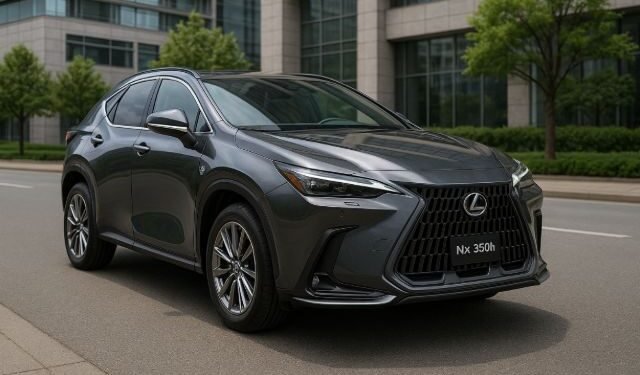Introduction: Why Hybrid SUVs Are the Smart Choice
If you’re shopping for a new vehicle in 2025, chances are you’ve considered a hybrid. With rising fuel costs, environmental concerns, and government incentives, hybrid SUVs strike the perfect balance between performance, efficiency, and modern technology.
But here’s the challenge: the market is crowded. Choose the wrong SUV, and you may face buyer’s remorse—high repair costs, disappointing mileage, or features that don’t fit your lifestyle.
This article helps you navigate the choices to confidently find the best hybrid SUV today.
What Defines the “Best Hybrid SUV”?
When determining the best hybrid SUV, there isn’t a single answer. Instead, the right model depends on your priorities:
- Fuel Economy: Look for real-world MPG, not just EPA estimates.
- Performance: A balance of horsepower, torque, and smooth hybrid transitions.
- Interior Comfort: Consider family needs—legroom, cargo space, and seating.
- Technology & Safety: Driver-assist, infotainment, and EV-only modes.
- Price & Ownership Costs: Factor in insurance, warranty, and resale value.
A car that’s “best” for a daily commuter might not work for a large family or someone seeking luxury.
The Top 5 Best Hybrid SUVs in 2025
Here’s a detailed comparison of leading models, based on Consumer Reports, Edmunds, and Kelley Blue Book:
| Model | MPG (Combined) | Starting Price | Key Features | Best For |
|---|---|---|---|---|
| Toyota RAV4 Hybrid | 40 MPG | $31,500 | AWD, reliability, resale value | City & highway drivers |
| Honda CR-V Hybrid | 38 MPG | $33,700 | Spacious cabin, safety tech | Families |
| Hyundai Tucson Hybrid | 37 MPG | $32,500 | Modern design, 10.25” touchscreen | Tech-focused buyers |
| Ford Escape Hybrid | 39 MPG | $31,000 | Agile, compact, efficient | Urban commuters |
| Lexus NX 350h | 39 MPG | $44,000 | Luxury interior, premium warranty | Professionals seeking comfort |
Best Hybrid SUVs by Lifestyle
1. Best for Families: Honda CR-V Hybrid
The CR-V Hybrid offers roomy seating, advanced Honda Sensing safety features, and class-leading cargo space. Parents appreciate its smooth ride and reliability.
2. Best for Commuters: Toyota RAV4 Hybrid
The RAV4 Hybrid stands out with fuel efficiency and rugged durability. It’s perfect for city driving, highway commutes, or even light off-road adventures.
3. Best Luxury Hybrid SUV: Lexus NX 350h
With leather interiors, premium audio, and Lexus’ long-term reliability, the NX 350h is ideal for professionals or couples who value comfort and refinement.
4. Best Value: Ford Escape Hybrid
At one of the lowest starting prices, the Escape Hybrid delivers strong mileage without compromising on agility. It’s a great budget-conscious option.
5. Best Tech-Rich Option: Hyundai Tucson Hybrid
Packed with modern tech like wireless Apple CarPlay, smart cruise control, and a bold design, the Tucson Hybrid appeals to younger buyers and tech enthusiasts.
Hybrid vs. Plug-In Hybrid SUVs: What’s the Difference?
- Hybrid SUVs recharge their batteries through driving and braking. No external plug needed.
- Plug-in Hybrid SUVs (PHEVs) offer longer electric-only ranges (20–40 miles) but require charging at home or stations.
Quick Example:
- Toyota RAV4 Hybrid = self-charging hybrid
- Toyota RAV4 Prime = plug-in hybrid with 42 miles EV range
If you have home charging, a PHEV may save even more. Otherwise, a traditional hybrid is easier to maintain.
Pros and Cons of Hybrid SUVs
Pros:
- 30–50% better fuel economy than gas SUVs
- Lower emissions and eco-friendly driving
- Quieter ride with electric assist
- Strong resale value in today’s market
Cons:
- Higher initial purchase price
- Battery replacement (though rare) can be costly
- Less towing power compared to full gas SUVs
Case Studies: Real Owners, Real Results
- Sarah, a teacher in Chicago:
Switched from a gas SUV to a Toyota RAV4 Hybrid. She reports saving about $900 annually in fuel and loves the peace of mind from Toyota’s hybrid warranty. - Mark, a tech worker in Seattle:
Bought the Hyundai Tucson Hybrid for its futuristic design. His feedback: the infotainment is top-notch, and city mileage is better than expected. - The Patel family in Texas:
Moved from a sedan to a Honda CR-V Hybrid. With two kids, the extra cargo space and advanced safety features made daily school runs much easier.
Tips to Avoid Buyer’s Remorse
- Set Priorities: Decide whether fuel economy, comfort, or price matters most.
- Test Drive at Least 3 Models: Don’t buy after driving just one SUV.
- Check Hybrid Warranty: Look for 8–10 years on batteries (Toyota, Honda).
- Read Consumer Reports & Forums: Real-world ownership insights are gold.
- Plan Resale Value: Models like the RAV4 Hybrid consistently hold value.
Common FAQs About Hybrid SUVs
Q1: How long do hybrid SUV batteries last?
Most last 8–12 years or 100,000–150,000 miles. Many brands back this with long warranties.
Q2: Are hybrids expensive to maintain?
Not usually. Routine maintenance is often cheaper than gas SUVs since brakes last longer due to regenerative braking.
Q3: Do hybrids lose power compared to gas SUVs?
Not anymore. Modern hybrids often have equal or better torque, especially for city driving.
Q4: Can hybrids handle long road trips?
Absolutely. They perform just like regular SUVs, often with longer range thanks to combined gas and electric power.
Q5: Should I wait for electric SUVs instead?
If you have reliable charging access, EVs are great. But hybrids remain the most practical step for drivers who aren’t ready to go full electric.
Conclusion: Find the Best Hybrid SUV for Your Needs
Choosing the best hybrid SUV means balancing performance, efficiency, and long-term ownership value. Whether you prioritize family comfort, luxury, affordability, or cutting-edge tech, there’s a model that fits.
By researching, test driving, and understanding long-term costs, you can avoid buyer’s remorse and drive confidently into a greener, smarter future.







